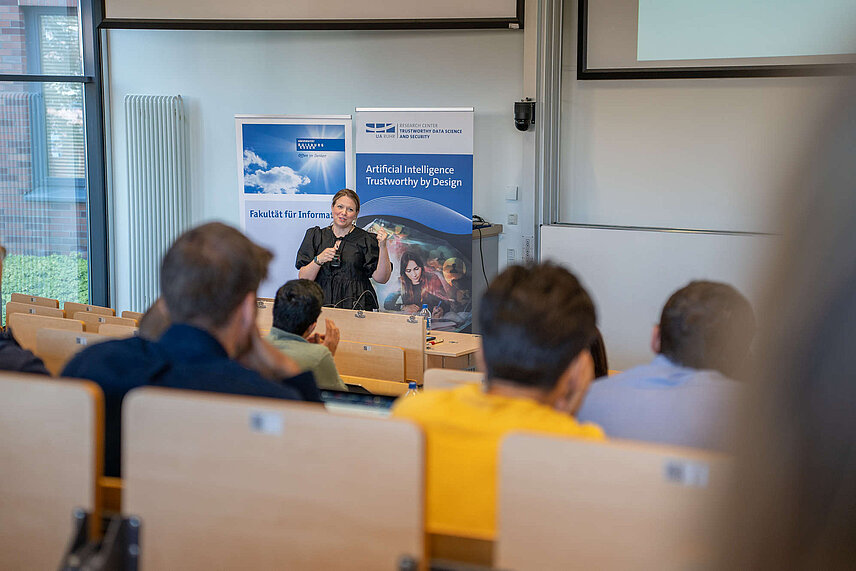08.10.2025
During her visit to the RC Trust Graduate School, Prof. Elizabeth Tipton from Northwestern University explored how research can better serve society — by aligning scientific rigor with real-world needs.

What makes evidence truly trustworthy? This question stood at the center of Prof. Elizabeth Tipton’s talk Developing Trustworthy Evidence: From Science to Policymaking held at the RC Trust Graduate School on October 1, 2025.
As Professor of Statistics and Data Science and Human Development and Social Policy at Northwestern University, Tipton urged researchers to rethink how evidence is produced and communicated. While randomized trials and causal inference methods are essential tools in science, she reminded the audience that the evidence scientists generate does not always match the information policymakers need.
“Decision-makers are often more concerned with how an intervention can be implemented and for whom it works,” Tipton explained. “Average effects alone rarely tell the full story.”
Her presentation highlighted how heterogeneity (the variation across people, contexts, and settings) should play a central role in study design. She called on researchers to define their target populations, represent them meaningfully in their samples, and even oversample extremes to capture a fuller picture of reality.
At the same time, Tipton pointed to the challenges within academia itself. The current incentive structures, she noted, do not always reward the kind of careful, context-sensitive research that benefits society. Instead, they often favor large effect sizes and quick publications. Her message was clear: doing the right thing in science sometimes means doing the harder thing.
She also encouraged a closer look at how evidence is used and understood; drawing inspiration from human-computer interaction (HCI) research. Questions of trust, presentation, and decision-making remain open, she argued: How do policymakers process data? What makes evidence convincing: clarity or precision? And can simplifying information make it more trustworthy, even if less detailed?
Prof. Tipton’s visit exemplified what the RC Trust Graduate School stands for: connecting disciplines, questioning conventions, and fostering dialogue between science and society. Through such international collaborations, the Graduate School continues to promote an environment where early-career researchers learn not only to conduct excellent science, but also to make it matter.
Category
- News
- Talk
- Event